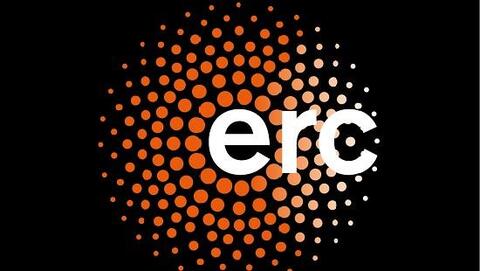
ERC Grant - Winners 2023
Several researchers from our partner establishments, and hosted at Sorbonne University, are ERC 2023 Starting Grant, Synergy Grant and Consolidator Grant winners.
ERC Starting Grant Winners 2023
- Thomas Andrillon, researcher at the Brain Institute, for the "SleepingAwake" project, (Sleep intrusions during wakefulness and their cognitive consequences).
- Sara Bizzotto, researcher at the Brain Institute, for the "LINMOS" project (Lineage tracing of the human brain)
- Nicolo Accanto, Inserm researcher at the Vision Institute, for the "2P-BRAINSCOPY" project (A two-photon compound fiberscope to study the brain at all spatial and temporal scales)
- David Gueorguiev, CNRS researcher at the Intelligent Systems and Robotics Institute (ISIR), for the "TANGO" project (Computational Modelling of Tangible Objects on Multisensory Interface)
- Nancy Paul, CNRS researcher at the Kastler Brossel Laboratory (LKB) for the "PAX" (AntiProtonic Atom X-ray spectroscopy) project.
Also:
- Dafni Hadjieconoumou, winner of an ERC Starting Grant initially submitted with the University of Heidelberg (Sorbonne University's partner in the 4EU+ Alliance 4EU+) for the GutSense project, has just joined the Brain Institute.
- Vincent Libis, Inserm researcher, winner in 2023 for his "MeDiSyn" (Scalable Microbial Metabolite Discovery Through Synthetic Biology) project, will soon be joining le the Computational and Quantitative Biology laboratory (LCQB)
- Richard Dorrell, CNRS researcher, winner in 2021 for his project "ChloroMosaic" (Environmental functions of the mosaic proteome of the secondary red chloroplast) will also be joining the LCQB.
- The "PECUNIA" project (Private interests in public functions: Framing a new paradigm of power in the cities of the Roman Empire, from the end of the Republic to Diocletian) by Anne-Valerie Pont-Boulay, associate professor at UMR Orient et Méditerranée, submitted under the ERC Consolidator Grant 2022, was funded in summer 2023.
ERC Synergy Grant Winners 2023
- Serge Picaud, Inserm research director and director of the Vision Institute (IDV), for the “NeuroSonoGene” project (A sonogenetic brain-machine interface for neuroscience and visual restoration)
- Takis Kontos, CNRS research director at the ENS physics laboratory (LP-ENS), for the “DarkQuantum” project (Quantum Technologies for Axion Dark Matter Search)
- Sabrina Speich, ENS/PSL professor at the Dynamic Meteorology Laboratory (LMD), for the “WHIRLS” project (The impacts of ocean fine-scale whirlwinds on climate and ecosystems)
ERC Consolidator Grant Winners 2023
- Eleonora Di Nezza, Sorbonne University professor at l'Institut de mathématiques de Jussieu-Paris rive gauche (IMJ-PRG), for the project "SiGMA" (SinGular Monge-Ampère equations)
- Leïla Perié, CNRS research director at the Laboratoire Physico-Chimie Curie (PCC), for the project "Dynamyelo" (Quantifying cell dynamics in myelopoiesis during immune responses)
- Nicolas Renier, Research director at the Paris Brain Institute l'Institut du cerveau (ICM), for the project "VIRGINS" (Vascular Interactions and Remodeling during Gestation and its Impact on Neuronal functions)
The ERC
The ERC, created by the European Union in 2007, is Europe's leading research funding agency. The ERC offers four grant programs: Starting Grants, Consolidator Grants, Advanced Grants and Synergy Grants.
The ERC Starting Grant provides funding for projects carried out by researchers with 2 to 7 years' experience since their thesis.
This support enables prize-winners to develop excellent, ground-breaking research at the frontiers of knowledge, with a team of their choice set up for the project. The only selection criterion is scientific excellence.
The ERC Synergy Grant offers grants designed to enable groups of 2 to 4 scientists, from member or associate countries, to “tackle some of the world’s most challenging research problems, which span multiple scientific disciplines.”
The ERC Consolidator Grant provides funding over 5 years, enabling scientists with a minimum of 8 years' post-doctoral experience to develop an ambitious, risky and innovative research project that breaks with their current scientific activities. The selection is based primarily on the excellence of scientific results obtained in the years preceding the application.
